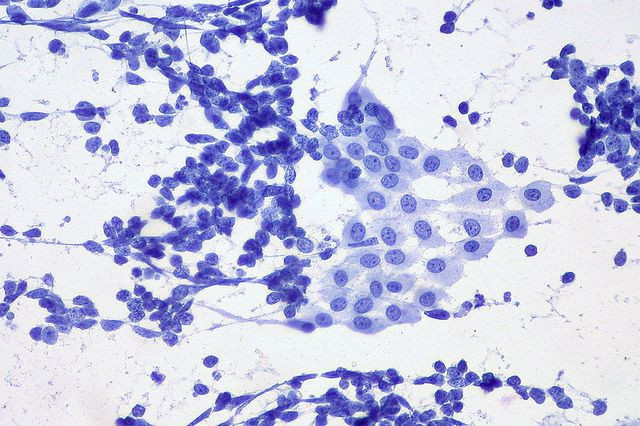Cutting Edge Cancer Treatments

With the news from Cambridge Consultants and Singapore-based Clearbridge Biomedics that they are developing a test that will make identifying cancerous tumours from blood cell samples quicker and more precise, we decided to take a look at the other revolutionary therapies that are in the pipeline at the moment.
Clinical trials are underway for the Kanzius RF Therapy, to test its efficacy at using radio waves to excite “metallic nanoparticles inserted in or around cancerous cells; the energy from the radio waves creates heat which burns the cancerous cell cluster.” Dr. Steven Curley, heading up the investigation in Houston posted exciting results In July on non-human test subjects. The idea is that this therapy will be non-invasive and less damaging to tissue surrounding the cancerous cells treated.
Meanwhile in Sydney, a new radiation program is said to be cutting radiation therapy times by up to 80%. Speed is the target here, and it is claimed that the linear accelerator being used (at a cost of $7m) could carry out as many as 33 radiation treatments a day. It is claimed to be more accurate and requires fewer patients to have an anesthetic in order to achieve this accuracy. This is especially important for younger patients with head or neck tumors. The “Truebeam Accelerator” is only currently in use at the Westmead Hospital in Sydney.
Drug pairing with treatments that are already available, on the market or can be easily developed, have the potential to treat abnormalities of lung cancer, specifically Squamous Lung Cancer, usually caused be smoking and which constitutes 25% of lung cancer cases. A National Institute of Health study, published in Nature, brought together 300 authors as part of a project known as the Cancer Genome Atlas.
Women with breast cancer may be able to expect more personalized treatment in the future, thanks to a new breakthrough in scientists’ understanding of breast cancer. There are now four main identified classes of the disease. A major gene study Washington University School of Medicine studied genetic data from 825 patients. Dr. Matthew Ellis, co-leader of the research said, “Now we can investigate which drugs work best for patients based on the genetic profiles of their tumour.”
Many cancer patients are worried about the effect of cancer treatments such as radiotherapy and chemotherapy on their fertility. Australian researchers at Melbourne’s Monash University and Prince Henry Institute of Medical Research have discovered a potential way of safeguarding egg cells in the ovaries. Two proteins – named PUMA and NOXA – destroy the egg cells. By removing the PUMA protein, eggs were able to survive the radiation therapy.
As with all new breakthrough, findings and therapies, it can be a long time until these become widely available. They need to undergo rigorous testing and be given the green light from the various governing bodies. Do talk with your doctor or consultant about treatments that you hear about. They are in the best position to advise you for your own individual situation.
If cancer is something you are dealing with and would like some support then visit Cancer Research.



























